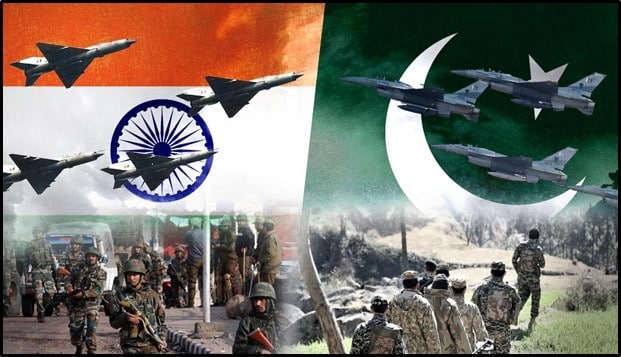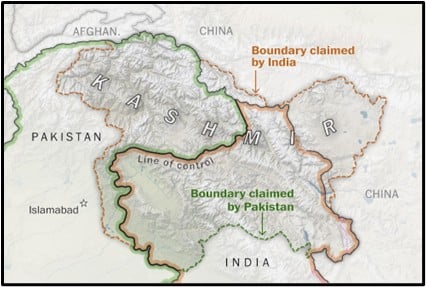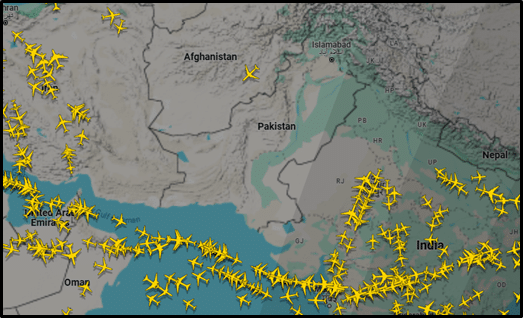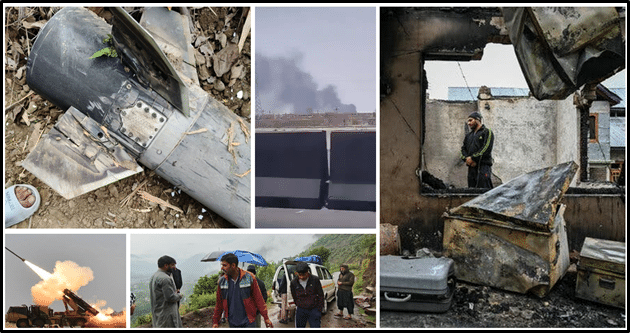Escalation in tensions between India and Pakistan
The ongoing dispute over the Kashmir region, which has been claimed by both India and Pakistan since their partition in 1947, remains the primary source of tension between the two countries. The region has been the cause of multiple wars and frequent skirmishes. In April 2025, a terrorist attack in Pahalgam, India, resulted in the deaths of 26 civilians. India attributed the attack to Pakistan-based militants, specifically the group Jaish-e-Mohammed. Pakistan denied any involvement.
Following the Pahalgam attack, India launched Operation Sindoor, targeting what it identified as terrorist infrastructure within Pakistan. On 7 May, India carried out missile strikes on three Pakistani airbases: Nur Khan near Islamabad, Murid in Chakwal, and Rafiqui near Shorkot. Pakistan reported that most of the missiles were intercepted and caused minimal damage.
In retaliation, Pakistan initiated Operation Bunyan Marsoos, targeting Indian military facilities. The exchange of attacks included drone and missile strikes, as well as artillery shelling along the Line of Control. Both nations reported casualties and infrastructure damage. Pakistan claimed to have shot down five Indian aircraft during the conflict.
Airspace closures and aviation disruptions
As the conflict escalated, Pakistan closed its airspace to all civilian flights on 9 May. This decision caused major disruptions in international air travel, leading to numerous flight cancellations and rerouting. Indian airlines suspended operations in the affected regions, while international carriers adjusted their routes to avoid the conflict zone, increasing air traffic in neighboring countries.
In India, several airports in northern and western regions—including Srinagar and Amritsar—were temporarily shut down. The Indian Air Force took control of certain airports, suspending civilian operations.
India and Pakistan exchange airstrikes
On 9 May, the conflict intensified with reciprocal airstrikes. India targeted additional sites in Pakistan, claiming they were militant training camps. In response, Pakistan launched attacks on Indian military installations. These exchanges resulted in more than 60 reported deaths.
Pakistan claimed it had damaged several Indian military assets, including the S-400 air defense system, a BrahMos missile base, and airbases in Sirsa, Jammu, Pathankot, Bhatinda, Nalia, and Bhuj, as well as an ammunition depot. Indian Army Colonel Sofiya Qureshi rejected these claims, calling them “fabricated campaigns.” Pakistan also alleged that Indian forces had targeted mosques. India denied the accusation, stating, “Our operations have been aimed exclusively at terrorist camps and facilities being used for anti-India activities. No religious sites have been targeted by Indian Armed Forces.”
The international community expressed serious concern over the escalating conflict, particularly due to the nuclear capabilities of both countries and the already heightened regional tensions. Following the airstrikes, the United States, through Secretary of State Marco Rubio, initiated diplomatic efforts to de-escalate the crisis. Indian Prime Minister Narendra Modi and Pakistani Prime Minister Shehbaz Sharif held high-level security meetings to assess the developments.
Ceasefire agreement & Outlook
On 10 May 2025, India and Pakistan agreed to an immediate ceasefire following U.S.-led diplomatic mediation. President Donald Trump announced the agreement, stating that both nations had committed to a full and immediate halt to hostilities. Pakistan’s Foreign Minister Ishaq Dar and India’s Foreign Secretary Vikram Misri the ceasefire and emphasized a shared commitment to de-escalation.
Despite the agreement, tensions remain elevated. Both sides have stated they are prepared to respond if the other violates the ceasefire. The international community continues to urge both countries to engage in constructive dialogue to prevent further escalation. The Directors General of Military Operations of India and Pakistan are scheduled to hold another discussion on 12 May.
While the ceasefire has provided a temporary pause in hostilities, the underlying issues, particularly the Kashmir dispute, remain unresolved. The risk of renewed conflict persists if diplomatic progress stalls. Sustained international involvement and efforts to establish reliable communication channels between India and Pakistan are essential to maintaining long-term regional stability.
Related developments will continue to be monitored and addressed as necessary. Clients are advised to exercise caution if travelling to the region and stay up to date regarding the latest developments. The impact on regional travel should be monitored closely and contingency plans, communication and emergency response plans developed in the event of escalation.
For further guidance, advise and travel security briefs, please contact us.





